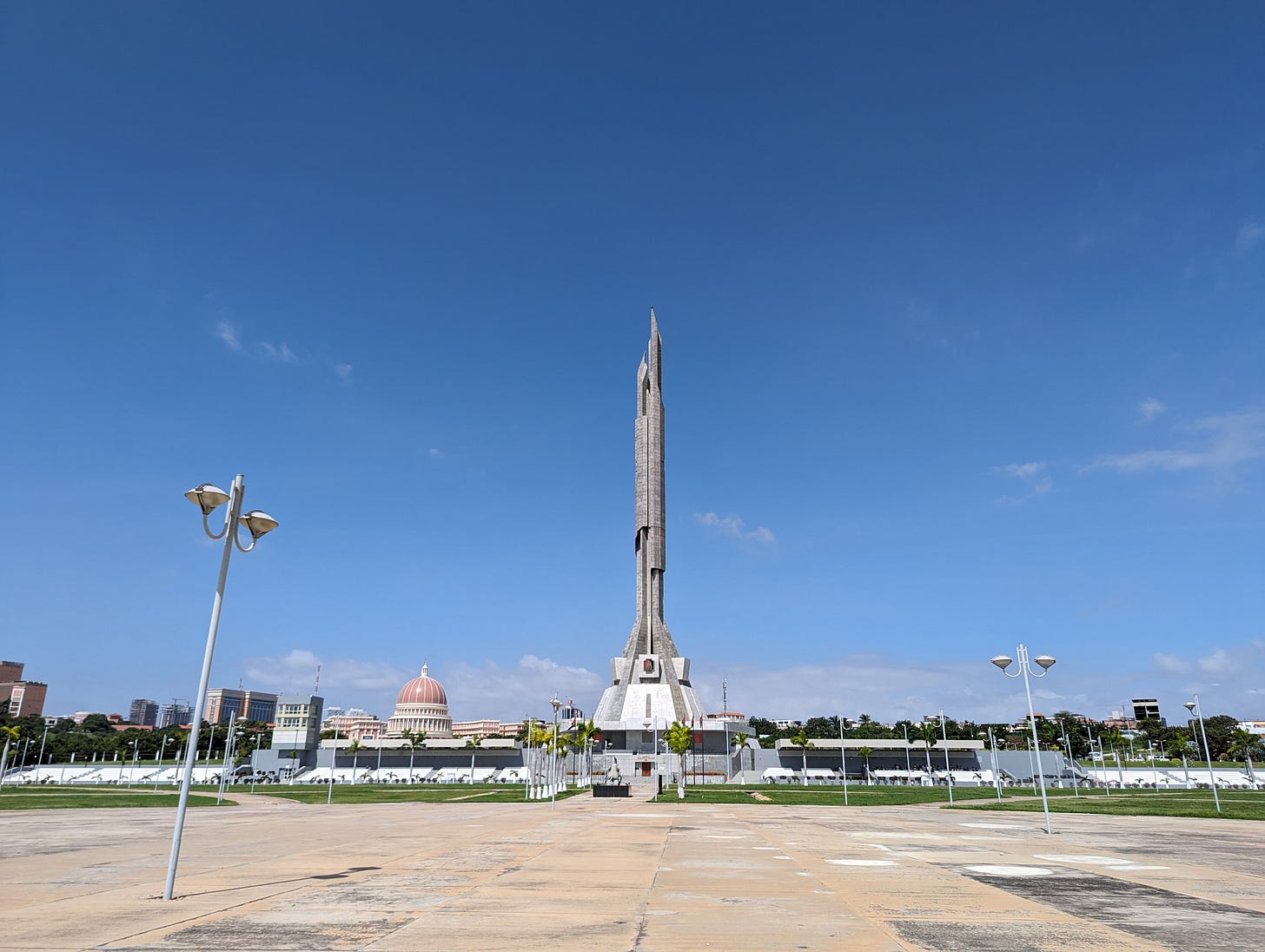Avó Dezanove e o Segredo do Soviético
Tiny book review
A young boy is growing up on the burning-hot coast of Luanda, as Cuban soldiers and Soviet advisers help to defend Angola from South African forces bent on crushing the revolution and imposing a government that is friendly to the Apartheid regime.
But the war is far away from the protagonist’s own dusty neighborhood, where he experiences the Cubans as friendly doctors and the Russians as comically awkward, well-intentioned but sweaty and stinky and mostly incomprehensible soldiers bent on erecting a massive memorial to anti-colonial leader Agostinho Neto. The kids hatch a plot, remixing tropes and language they have ingested from Hollywood movies and official Communist discourse, unaware of one Soviet man’s true intentions.
If that sounds like your kind of thing, I heartily recommend Avódezanove (published in English as “Granma Nineteen and the Soviet’s Secret”) by Angolan novelist Ondjaki. I read it in Portuguese while staying a few blocks away from the real mausoleum (photo above, mine) and it brought history to life in a way that my non-fiction books could not. I imagine that something is lost in translation, because so much of the book takes place in the spaces between Portunhol, fake-Spanish, mock-Russian, and the young narrator’s determination to sharpen and wield his very own Angolan Portuguese. But the English-language rendition renders its own set of multilingual associations. “Granma” of course is a common pronunciation of the word that means abuela, as well as the name of a boat that shaped this story deeply.



Thanks for the book recommendation, Vincent. The novel was also made into a movie directed by João Ribeiro,